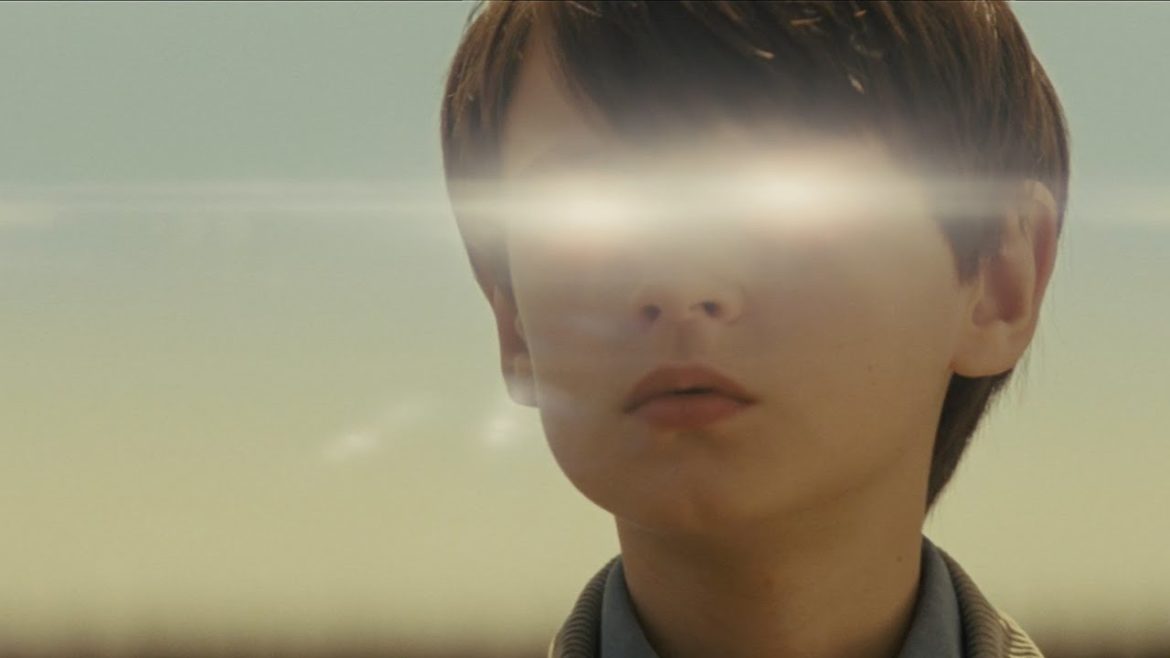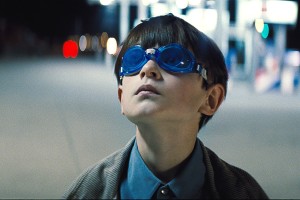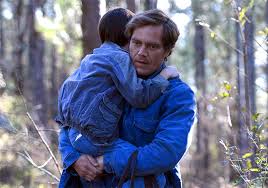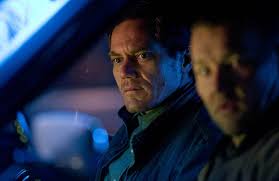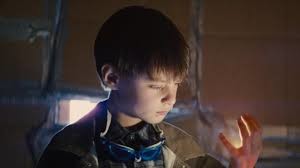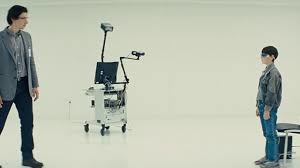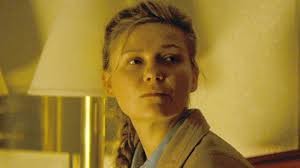Before you throw up your hands in thinkpiece-allergic disgust, let me say: I have no idea what Nichols’ faith might be. I haven’t researched it, and don’t particularly plan to. The films speak for themselves.
Like the Coen brothers, his films – Shotgun Stories, Mud, Take Shelter, and now Midnight Special – mine particular areas of the American theological imagination. They’re genre pictures with G-d on their mind. And like the Coens, Nichols’ films might even be said to work as Existentialist parables, lived-in depictions of deeply conflicted people trying to navigate a fallen world without guidance.
In Nichols’ case, this became most clear with Take Shelter, one of the greatest American films in a decade. Through the story of a father and husband (Michael Shannon) granted the knowledge of impending doom (maybe), Nichols draws out the line and suspends our disbelief. Is Shannon mad or does he really have access to something like the divine? In its ambivalent focus on fatherhood, Take Shelter becomes a clear retelling of the story of Isaac – the bomb shelter in the yard substitutes for a sacrificial altar, as we watch a man grapple with opposing truths. As in the Coens’ similarly Old Testament-fueled A Serious Man, we end on the cusp of revelation, disaster looming. And then the credits roll.
Despite its sci-fi trappings, Midnight Special is up to something similar. The young Alton Meyer (Jason Lieberher, continuing Nichols’ streak of eliciting powerful performances from kids) is introduced to us in goggles and headphones, hiding under a bedsheet like the actual E.T. Roy (Shannon yet again) helps spirit him to a car with the help of accomplice Lucas (Joel Edgerton, in a performance that quietly steals the show). A TV informs us that we’re witnessing the next phase in a kidnapping – Amber Alerts ring out, along with sketchy information about our protagonists.
But it becomes clear we’re in Spielberg territory, with echoes of Stephen King. Alton is actually an unusually gifted little guy: he can shine blinding light out of his eyes, bring down satellites, and hear radio waves. Both of his “kidnappers” have other stories to tell – Roy is his father, deeply committed to his safety; Lucas is Roy’s friend, a state trooper who helps out of loyalty and eventually out of belief.
In a nod to the great, paranoid chase films of the 70s and 80s, we discover Alton’s very much in demand by nefarious forces. The government thinks he’s a weapon. A doomsday cult thinks he’s their savior. Alton doesn’t wish to be either. The three of them rush to the house of Sarah Tomlin (an impressive Kirsten Dunst), Alton’s mom and Roy’s ex, who fled the weirdo cult commune for reasons left mostly undiscussed. Everyone is after them.
Throughout all this, Nichols builds an uncanny mood and atmosphere. Alton is a pint-sized adult, a Spielbergian otherworldy sort before we even discover his gifts, and really the most calm person around. The adults say more with their eyes and bodies than they do with their words. As we cross the Bible Belt, from Texas to Louisiana, attempting to find the coordinates Alton has foretold as the site of some great Happening, Nichols creates a serious disjunct between the magic realism of the narrative and the everyday Southern trappings of the sets. This is where he excels as a director: making the ordinary pulse with portent, filling quiet spaces with ominous depth. From the cars to the filling stations to the motels to the fields, this is a recognizable world. The fact that it contains a boy who shoots lasers from his eyes seems almost incidental.
Much like in E.T., we are firmly on the side of the freak. Every rational system lines up against his freedom, seeing him only as a means to an end. (The suddenly ubiquitous Adam Driver has yet another terrific turn as an NSA analyst who’s tempted … well, by the dark side, I guess. Interestingly, in Nichols’ world, that Dark Side is also the rational one.)
It’s difficult to speak much more about Midnight Special without spoilers. Some commenters have responded without enthusiasm to its climax. I thought it worked extraordinarily well both in terms of the narrative and the metaphor of parenthood, or care, underlying it. There’s no doubt Nichols moves slowly; this is occasionally one of the slower “chase” movies I can imagine. Until it’s not.
Perhaps that’s because the film is less interested in the chase than the wonder underlying it. Other critiques have said the parts are underwritten. Nope. Shannon excels as a man grappling with another impossible set of decisions, Edgerton is affecting in his stoic role (and his transition), and Dunst completely sells the final moments. Her character, initially seeming a minor role, ends up being the crucial one, and the looks that pass over her face in the end are an acting showcase. She actually reminded me a bit of Ruan Ling-Yu in The Goddess, channeling multiple internal emotions at once.
As in Take Shelter, Nichols’ focus is on the unknowable and the inexplicable – in a word, the metaphysical. But it’s the link between that and our sense of duty as living agents that gives his films so much power. The connections between his characters pulse with life and empathy, as they make decisions without any clue whether they are doing right. They simply must choose. He’s a serious filmmaker whose stature will only grow.

